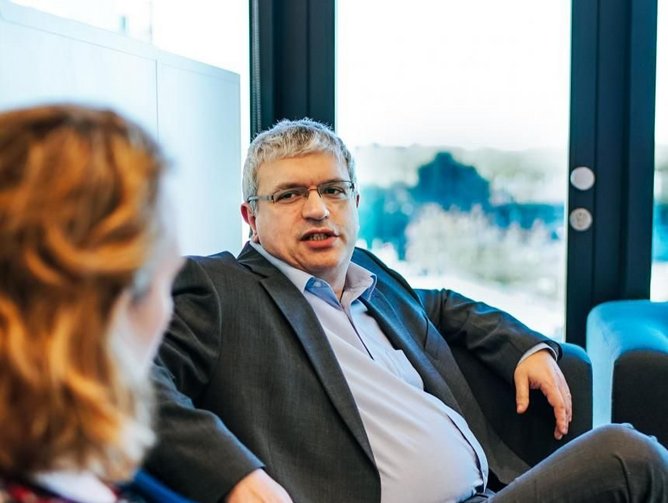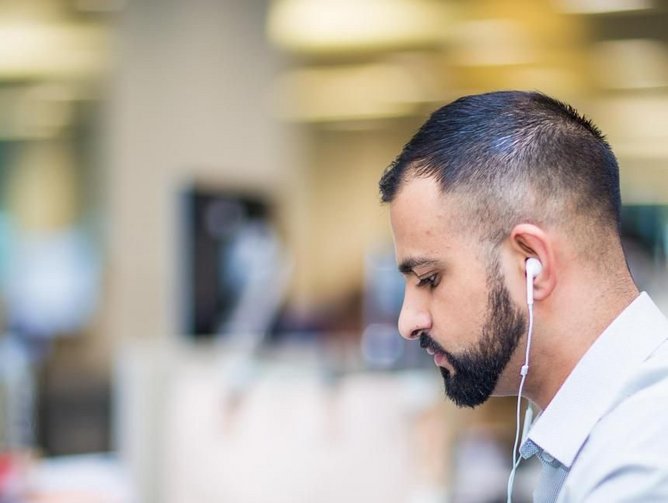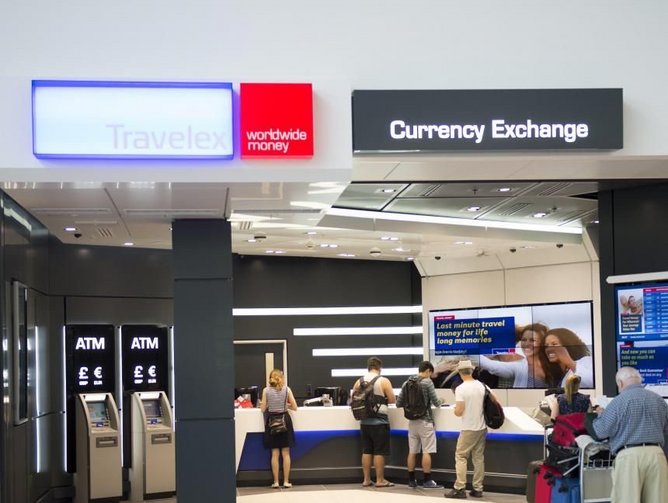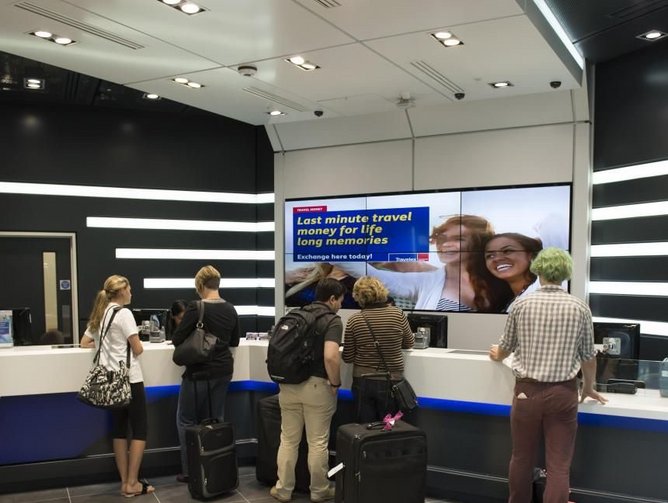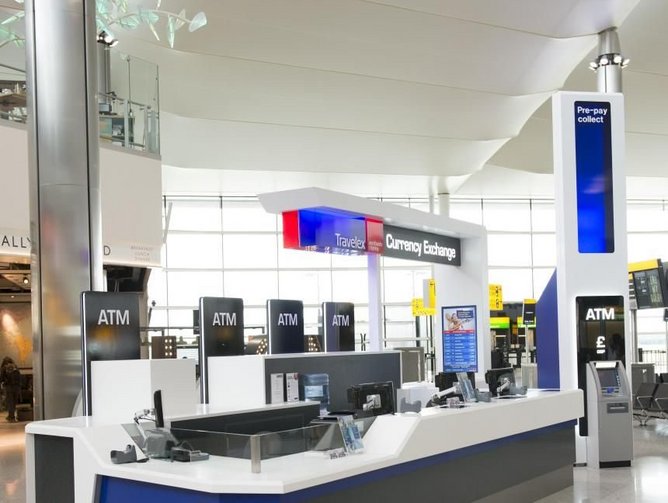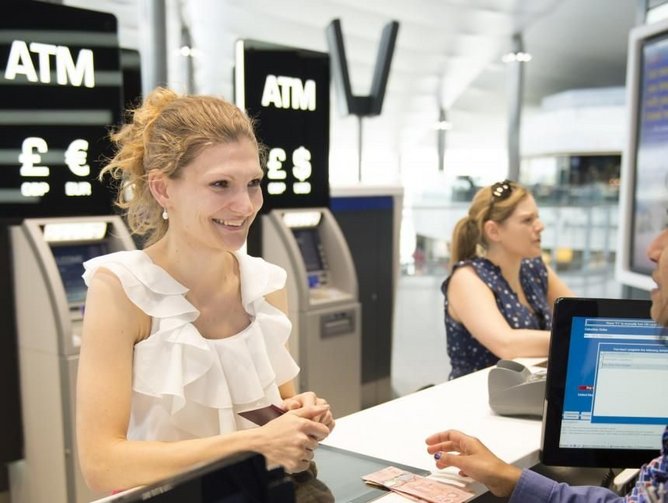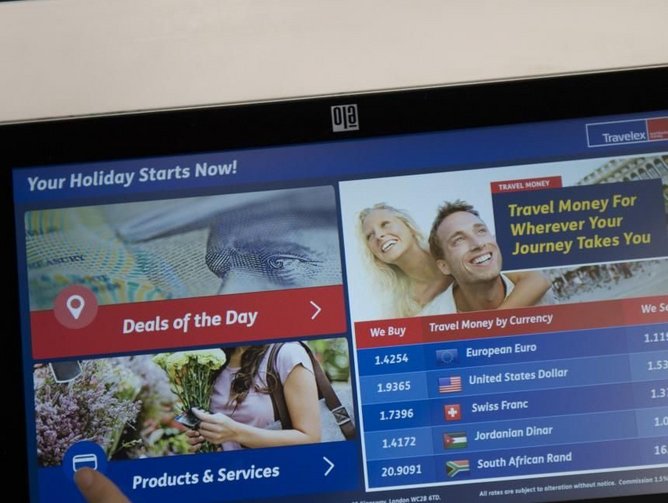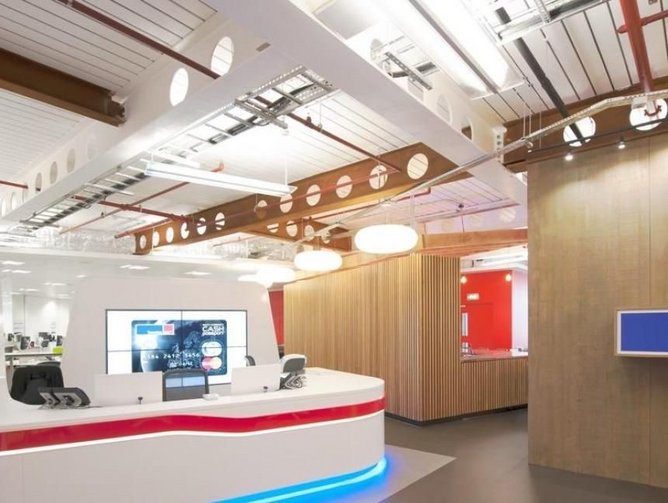Travelex’s ongoing technology transformation stays abreast of an evolving landscape
From tourists paying for meals to multinational corporations completing significant cross-border transactions, Travelex has been there every step of the way for over 140 years when it comes to foreign currency exchange. Having progressed from travellers’ cheques to digital payment platforms, the company can now be found in 1,200 Bureau de Change outlets across over 100 airports in 27 countries. Now employing over 9,500 people, Travelex is keen to remain at the fore of the changes encompassing the world of foreign exchange and money on the move. In order to do so, the FX giant is placing customer experience front and centre of a significant ongoing transformation – both in terms of technology and people, which Global IT Director Leonardo Tantari says go hand in hand.
Tantari joined the organisation in late 2017, and has been leading the charge in its digital transformation ever since. Previously working at Boots, and prior to that Experian, the IT Director is keenly aware of the challenges and opportunities facing any organisation when it comes to a technology transformation journey, and has applied this in the financial services sphere to develop Travelex’s instore, online, mobile and ATM channels and solutions. Citing 2018 as a “fantastic year”, Tantari spoke to us from Travelex’s Head Office in Kings Cross where the previous day he’d been recording a “5 minutes with” Q and A video for the company’s intranet. This, alongside various blogs and newsletters, will be shared with Travelex employees globally as part of an internal communications drive which Tantari says is vital to managing the changes and culture shift involved in the company’s journey.
“We’ve had a successful year in terms of delivery, from a development perspective but also from a supportability perspective,” says Tantari. “It’s been fantastic. We introduced single points of contact globally, with two employees winning awards at their regional Diamond Balls held in January. These were given in recognition of the support they provided to their respective regions in 2018. We have brought a tremendous amount of transparency so we are now in a fantastic position where we can provide the right information to stakeholders.” Following on from this success, Travelex looks to the future with excitement, and technology plays a key role in its vision. “We have to ensure we have the right tech and the right people to support the running of the business,” Tantari explains.
A tech-led organisation
In terms of technology, Travelex is making strides utilising the latest advancements from cloud technology to automation, always with operational efficiency and the ideal customer experience front of mind. “One of the key activities we embarked on is cloud transformation – it brings us tremendous agility in the way we can respond to our customers and partners, as well as bringing significant savings.” This agility has been instrumental in Travelex’s recent partnership with digital gifting platform, Swych, to introduce Travelex Pay, a unique service within WeChat. The service is available to travelers from mainland China who are visiting the US – allowing them to purchase goods and services from a large network of retailers using their native currency. “This has been fantastic because it enables the Chinese community in the US to use a consumer offering from Swych, and it demonstrates that technology at Travelex can really integrate with a global technology partner. It shows tremendous effort in terms of how we collaborate, and how technology can transform the Travelex business.”
Travelex’s data science function is also instrumental in transforming the business, as it’s vital to be able to provide insights to all stakeholders in order to make informed decisions. “We use Big Data in particular – but also AI,” says Tantari. “One example is the building of our retail stock engine, which allows us to better distribute our retail stock across our stores. That has been a combination of using both Big Data and AI.”
In addition, Travelex has made significant progress with automation, both in terms of improving time to delivery as well as quality of output to customers and partners. Automation is also used to migrate data, saving time for partners whilst providing enhanced security in the process. “Automation removes some of the human activities,” Tantari comments, “but it should be focused on removing the more administrative types of tasks. Ultimately, we still need engineers to help us work and inform effective automation – with that, the focus then moves to actually being part of activities which hone in on the real outcomes of automation. This in itself is a change: some people of course need to understand their job has to change, but it’s changing from being more task-oriented to more outcome-focused, which is critical.”
Throughout these new developments which are driving increasing efficiency at Travelex, the importance of people can’t be underestimated. Recently, Travelex went through a successful restructure of its technology team. Tantari says this was necessary to ensure the right people were covering the necessary disciplines Travelex had identified as those that would help drive its future strategic ambitions, both in technology, and as a business. “As any organisation, we look at how to improve in terms of how we are set up, which sometimes means changes. I firmly believe the key to any successful change is communication: explaining, embedding the change, and motivating along that journey.”
With a presence across six continents, a regular dialogue between the technology team and the wider business is vital in ensuring everyone in the organisation understands the technology journey they are on – and it’s clear Tantari is passionate about the team he has built. “Travelex is a really exciting environment with a lot of opportunities, but with change comes the corporate responsibility to bring along our employees,” he explains. “Communication is something we constantly review from both a people perspective and a technology perspective. We’ll continue to do that with the introduction of more collaborative, innovative tools like improved telepresence, chatbots and video conferencing.”
Consumer demand across a changing landscape
The main driver of Travelex’s transformation has of course been the customer experience, as consumer behaviour changes rapidly. “We are seeing a big shift,” Tantari comments. “People are moving from using cash and banknotes to more digital solutions. Ultimately, there’s a shift toward self-service – that’s where we’re really focusing from a technology perspective. Customers nowadays are looking for a smooth and seamless journey when it comes to actually transacting with any company or organisation. It’s key for us to understand different types of customers: for example, our offline customers versus online customers.
“We have a presence online, on mobile and ATM, and we are leveraging technology such as online chat, but we always maintain a large number of stores on the high street and in airports – that’s really significant to us,” he adds. “Retaining the ability to ultimately speak to a person and offer the reassurance that the transaction is secure, as well as for us to really know our customer, is critical as it is for any financial institution.”
As with most companies and particularly those in the financial services industry, security is at the heart of Travelex’s operations. “It’s something we review constantly across our landscape,” says Tantari. “This year we will see a significant change in the space. We are piloting a set of tools which we will test to determine if they are able to detect incoming regulatory requirements across the globe– that will enable us to be ahead of the game, in relation to the products and services we offer. We have to meet rigorous, stringent requirements when it comes to security.”
These stringent requirements carry across not only Travelex’s vast landscape, but its network of partners and clients as well as the industry becomes increasingly open. “It’s inevitable: you can’t deliver everything by yourself,” Tantari comments. “You need to work with customers, partners and suppliers – the key is to understand how we best use the technology, and whether we have to build it for ourselves or buy it. We really ask our partners to adhere to stringent requirements when they come on board.”
Of these partners, two vital organisations are Ultima and CDW. “The world we live in now is about integration, the ability to use API to call other services – therefore, it’s fundamental that we have a fresh, open and aligned relationship with our partners. We have a very large distributed network we need to support – after all, we have over 9,500 employees dispersed globally across six continents. We rely on partners such as Ultima and CDW for provision of hardware, software and support across a number of systems to enable us to deliver the best services for our customers and employees.”
A changing landscape
Making this transformation work across their global estate, as well as a substantial network of clients and partners, has been no mean feat – but Tantari is confident about the journey so far as collaboration remains key. “Our Commercial Directors are supported by a local presence from our supportive functions, and we also ensure we have a close relationship with those Commercial Directors in order to drive not only the global agenda but the local agenda,” he explains.
“I think as we move into the future of connectivity, with talk of blockchain and digital currency, services will become seamless and API will be at the heart of everything we do. I believe that in every organisation technology will eventually have a platform and transform their business. Connectivity, but most importantly the way we share information, will become critical – changing, of course, in a safe, secure and efficient manner,” he adds.

